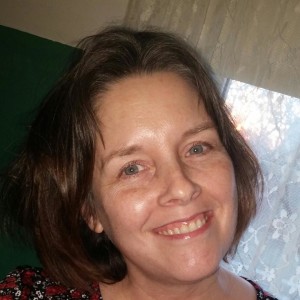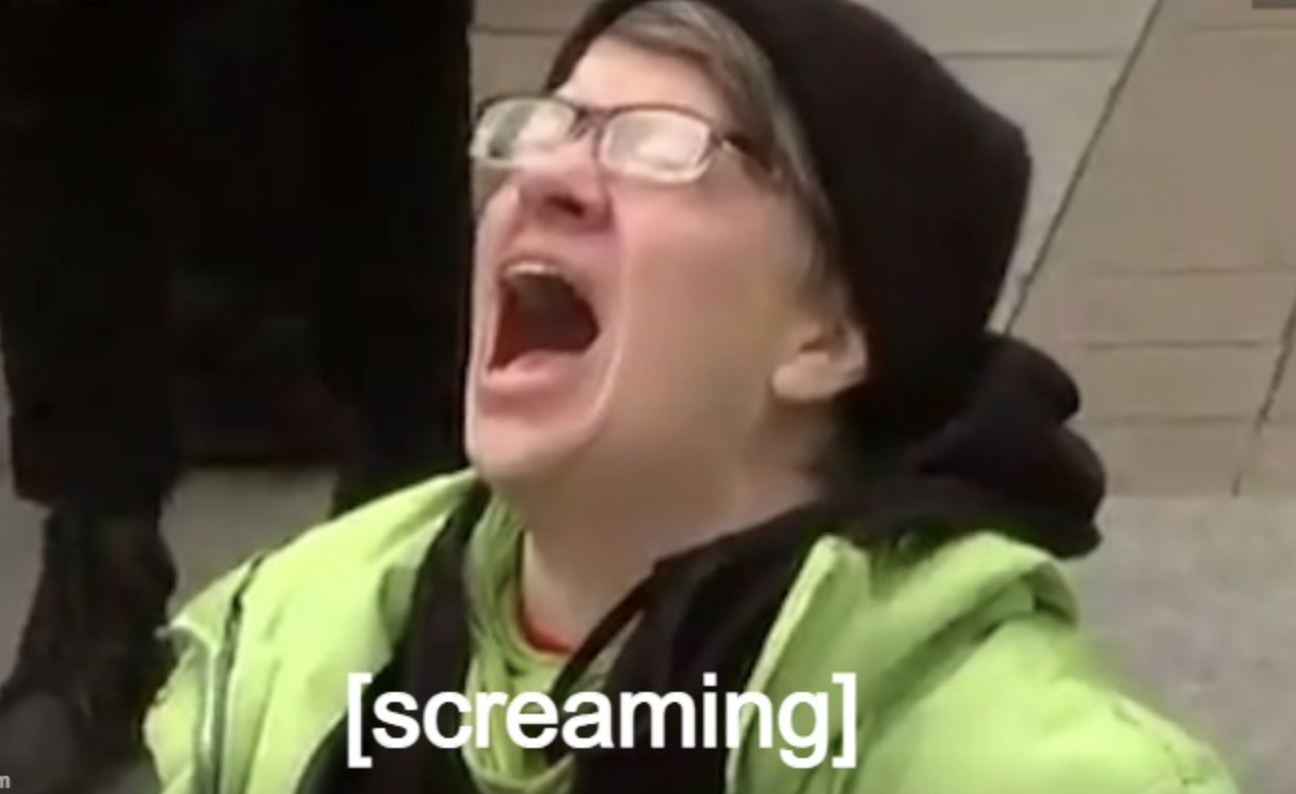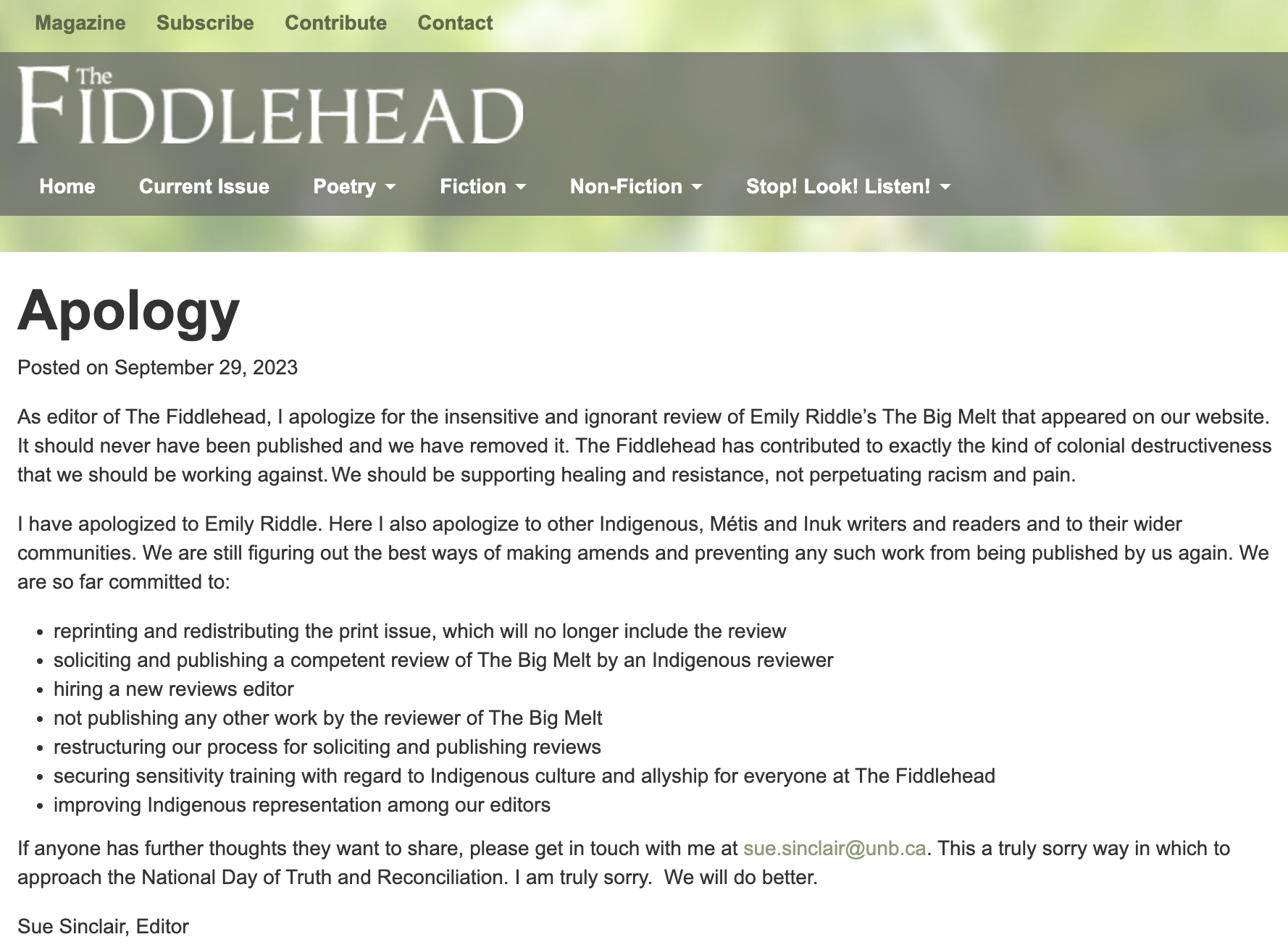 Corinne Wasilewski is the author of Live from the Underground (Mansfield Press, 2015). Her short stories have appeared in Front & Centre, The Windsor Review, The Nashwaak Review, The Battered Suitcase and most recently the anthology Polish(ed): Poland Rooted in Canadian Fiction. Her interview with Alden Nowlan is in the Autumn 2017 issue of The Fiddlehead. She was born and raised in Woodstock, New Brunswick, but, now lives in Sarnia, Ontario where she works as an occupational therapist.
Corinne Wasilewski is the author of Live from the Underground (Mansfield Press, 2015). Her short stories have appeared in Front & Centre, The Windsor Review, The Nashwaak Review, The Battered Suitcase and most recently the anthology Polish(ed): Poland Rooted in Canadian Fiction. Her interview with Alden Nowlan is in the Autumn 2017 issue of The Fiddlehead. She was born and raised in Woodstock, New Brunswick, but, now lives in Sarnia, Ontario where she works as an occupational therapist.
Lurking around your Facebook page, there’s a certain political feel to your posts that is inconsistent with the usual left-leaning, PC, ultra-progressive beliefs that are currently popular with many writers and artists. In a time when the expression of any political view is potentially dangerous, you seem to be putting it out there, regardless of the cost. Has this openness damaged your relationships, or are your friends like minded?
There’s a crusade in this country to limit or control what people are allowed to think and say. It goes by names like political correctness and social justice. At its best, the movement is shortsighted, narrow-minded and presumptuous. At its worst, it’s deceitful and tyrannical. Most recently we’ve seen its influence in the attestation attached to the Liberal’s Canada Summer Job Application. We’ve also seen it at play in the Wilfred Laurier/Lindsay Shepherd debacle, the compelled speech component of the Law Society of Ontario’s statement of principles, the compelled speech component of Bill C-16 as outlined in the Ontario Human Rights Code as well as in anti-Islamophobia M-103. The movement was directly responsible for Ryerson University’s cancelling of a panel discussion on “The Stifling of Free Speech on University Campuses” last summer and it has heavily influenced the Ontario public school curriculum. To say that the movement concerns me would be an understatement.
I’m a thinker. Ideas excite me. The world is complex and I enjoy trying to understand all sides to an issue. I don’t want people dictating what viewpoints are worthy of a platform in this country. I call that suppression of ideas. I don’t want people telling me what I can think or say. I call that censorship. I put a premium on freedom of thought, belief, opinion and expression and my Facebook page reflects this commitment.
The expression of political opinion has never got me into trouble so far. I’m not a public figure and my friends are not social justice activists so I guess that helps. Actually, most of the people I know have little interest in politics and/or no time to stay on top of the issues. I would actually enjoy more engagement by my friends on the issues I raise on my Facebook page.
I have lost one friendship because of my views. Communication became impossible because I deal in facts and logic while my friend prefers appeals to emotion and is OK with stretching the truth to further an argument.
The last American presidential race revealed some shocking (to me) flaws in how news from the mainstream media is prepared and presented. Even formerly trustworthy Canadian names made no attempt to present balanced coverage of the candidates. Trump was bad. Clinton was good. The world would end if you didn’t vote Democrat. The coverage went far beyond unfair attacks on Trump. In a disturbing development I’ve not seen in other elections, the media constantly attacked Trump’s base, labelling them racist and stupid. It was as if media outlets decided that dropping all journalistic ethics was fine if it prevented a Trump win. Were you seeing the same thing?
I don’t follow Trump and US politics, but, I certainly see bias in the media when it comes to other subjects. Take identity politics, for instance. It’s rare to see any objective, accurate reporting on that subject. The media is polarized with one news source taking one side, another news source the other. Mainstream journalism is pushing a progressive agenda. Articles are written through a social justice lens. Stories that do not support the social justice narrative are ignored or reported in a way that disparages and/or completely misrepresents the opposing side. James Damore is a good example. He’s the Google employee who was inspired to write a memo after attending a Google diversity program. He titled it “Google’s Ideological Echo Chamber” and in it he challenged the way that Google pursues diversity and the company’s assumption that gender gaps necessarily show the existence of some form of bias. Damore suggested that a company that was completely free of bias and discrimination would not end up with a 50/50 gender split in all job functions because there are population differences in some traits that might influence the jobs men and women prefer. I’ve read the memo a few times. Damore is clear in his support of gender and racial diversity and at no time does he state or even imply that women are incapable of working in tech or leadership positions. Quite the contrary. Unfortunately, the mainstream media didn’t see it that way. It was hard to believe they read the same memo I did. The memo became known as “that Google anti-diversity memo”. Headlines read: “Google Fires Engineer Who Wrote Memo Questioning Women in Tech”; “The Viral Google Memo is about the Stereotypes that Hold Women Back”; “James Damore, Google Engineer, Fired for Writing Manifesto on ‘Women’s Neuroticism’ Sues Company”.
The scientists weighed in and said the memo was fair and factually accurate. It didn’t matter. The outrage circus was already in full swing. The media accused, tried and convicted Damore of perpetuating gender stereotypes. They called him sexist, backwards, and clueless. Damore’s memo did not support the social justice narrative and so it was deemed blasphemy. This one sided reporting isn’t journalism. It’s propaganda and it’s happening again and again.
Jordan Peterson, another victim of constant media attacks, continues to annoy his critics with surging popularity, allegedly bringing in around $50,000 USD a month on Patreon. The Maclean’s headline asks, “Is Jordan Peterson the stupid man’s smart person?” In parallel with Trump, fans are attacked directly. With a headline like that, you just know that opinion piece is going to be fair and balanced. As a society, have we lost the ability to entertain ideas that diverge from assumed consensus and current orthodoxy?
No, I don’t think so. There’s a major segment of the population grappling with the narrative being force-fed through the mainstream media, social justice activists, the public school system and government. These people are educating themselves on the issues. There’s plenty of proof for that. Look at Jordan Peterson’s new book Twelve Rules for Life: An Antidote to Chaos. It’s topping the bestseller lists across this country, the US and even the UK. People are also listening to his YouTube lectures in droves and these talks are lengthy and sophisticated. A two hour and thirty eight minute lecture titled “An Introduction to the Idea of God” has clocked over 1,500,000 views, for example. Even his download of the Senate hearing on Bill C16 had clocked close to 700,000 views last time I checked. It’s also interesting to compare the numbers for a couple of petitions circulating online. A petition seeking to pull the plug on Peterson’s Patreon account had 791 supporters last time I checked while a petition supporting Peterson and his Patreon account had more than 18,948 signatures. That’s a ratio of 1 to 24 – it’s not even close. So no, I’d say there are plenty of people out there open to views that don’t support the prevailing orthodoxy. They’re just not as noisy.
I suspect more and more people are bypassing the mainstream media as a news source or at the very least balancing its message with information gleaned from internet sources like podcasts, YouTube, and blogs. Internet sources have a huge advantage over mainstream media in that they can explore an issue in depth rather than in the three minutes a news clip might give to it.
I’m loving “Quillette” for example. It bills itself as a “platform for free thought”. I check out Tarek Fatah and Raheel Raza to supplement any mainstream media coverage related to Islam. I look to Dr. Debra Soh, a PHD in sexual neuroscience, on sex and gender issues. Christina Hoff Sommers is my go to on feminist issues.
You linked to Cathy Newman’s interview of Peterson on Channel 4, a great example of a weaponized interview. Despite all the evidence, I continue to hold the supremely naïve view that interviews are for investigation and understanding, but those things were clearly not high on her list. Again and again she began with, “So you’re saying…” and followed with a complete misinterpretation of what he had previously said. She wanted his head, but when the execution did not go as planned, she literally ran out of words. For or against Peterson, you can’t help but be horrified by the motives and methods of Channel 4. Am I being too close minded in what I consider to be a proper interview? Are there any circumstances under which this kind of attack would be appropriate? Maybe if the subject continually refused to answer questions?
No, I don’t think you’re being closed minded at all. The problems as I see them include:
- A mainstream media that no longer has the resources or the inclination to fact check.
- A mainstream media with a proclivity for ideology over truth.
- A mainstream media with a growing tendency to sensationalize and titillate.
It’s not good. I mean, the media is one of those things that used to help keep everyone more or less on the same page from a reality testing perspective. Not anymore. Now, I suspect it’s a major contributor to feelings of dissociation and anomie.
Even though I prefer curiosity-based interviewing versus agenda-based interviewing, I do tend to overuse leading questions. In addition, I take advantage of the fact that people tend to answer questions no matter how inappropriate they may be. I don’t know if it’s Canadian politeness or a general urge to be helpful, but one could argue that leveraging either one of those is exploitive. Is it my job to censor my questions, or is it your job to tell me it’s none of my business?
Both. I see an interview as conversation not interrogation, but that doesn’t mean challenging questions are off limits. I think the key is in how the question is posed. Is it communicated in an inflammatory way with the intention to call out the interviewee and put him on the spot, kind of like interviewer as accuser, judge and jury or is the question posed in a neutral way with the interviewer acting as an information gatherer? In the latter scenario the members of the audience become the judge and jury which is the way I think it should be.
Fiddlehead 273 includes a reprinted portion of an interview that you and Carmen McKell did with Alden Nowlan months before he died. How do a couple of teenagers end up interviewing Alden Nowlan? Looking back on your teenage interviewer self, what would you have done differently, if anything? How do you think you did? Have your feelings towards Alden Nolan changed? Do you think he handled you differently than he would have handled adults?
I loved Alden Nowlan’s work then and I love it now. I think his poems and stories are timeless and speak to all ages. Of course, I might be biased because he speaks to my experience, my life growing up in New Brunswick. The places and characters in his poems and stories are very familiar to me, also, the poverty and religion. It’s the vulnerability, though, that really gives his work impact. I highly recommend his novel The Wanton Troopers.
My friend and I interviewed him for a grade twelve English project. He was writer in residence at UNB at the time. We wrote him a letter requesting an interview and he replied right away, invited us to meet with him at his home in Fredericton. We were from Woodstock, a hundred kilometres upriver.
I thought the interview went well considering our inexperience. My friend and I did our homework. We read everything Nowlan had written we could get our hands on. We labored over questions, but, were willing to abandon our set questions to pursue new ones when a response of his warranted it. We tried to develop rapport. I paraphrased his answers and not in a Cathy Newman type of way, but, as a sign of genuine interest. I suspect Nowlan handled us differently than he would have a seasoned adult interviewer. I suspect he indulged us a bit because of our obvious enthusiasm and sincere interest in him and his work.
Regrets? Not really. If you read my introduction to the interview on The Fiddlehead website you will know that I went into that interview looking for a sign. I was struggling to figure out whether I should follow my dream of becoming a writer or settle on a more practical career and I hoped Nowlan would say or do something that would make up my mind. I never came right out and asked him, but, you can tell I’m circling the question in the interview.
There was no sign. I settled on the practical career and it was twenty years before I got back to writing. There was a moment in time when I regretted that I wasn’t more direct when I unearthed the interview and listened to it some twenty-five years later. I had lost twenty years of writing time, after all and perhaps if I’d been more direct he would have inspired me to pursue a writing career. After giving the matter more thought, however, I have to say I believe my life has unfolded the way it should.
Sensitivity readers currently vet manuscripts for a long list of various offences to ensure that no one, anywhere, is ever offended. Novel by committee is bound to have profound effects on books now being published. You’ve linked to the sad story of Angie Abdou, someone who did everything she could to be in compliance, including running her book past various groups and employing a sensitivity reader. None of this proved sufficient to avoid criticism, scorn, and judgment for writing about a group of people to which she did not belong. What do you think of the use of sensitivity readers? Would you ever ask one to review a book you had written?
I tend to write close to home. My writing is concerned with making sense of my own experience, so chances are slim I’d require the services of a sensitivity writer. That being said, I’m appalled by sloppy, poorly researched writing and a story would lose credibility for me if it contained stock characters or characters behaving in ways that are at odds with who they are, say, a character who is a Jehovah’s Witness glibly consenting to a blood transfusion, for example. If a sensitivity reader eliminates errors like this I’m all for them.
My worry, however, is that at least some sensitivity readers envision a bigger role for themselves than that of mere fact checker. They want to educate writers about how their work functions as an extension of a society that is harmful and would like to see novels used as tools to correct these injustices. They use phrases like “internalized bias” and “negatively charged language”. This sort of role concerns me very much. To read a novel solely through the lens of social justice is to weaken the power of the story considerably. A novel is first and foremost about individuals and all individuals, even the members of marginalized groups, are good and bad. I remember being shocked by a review of my novel, Live from the Underground. The reviewer commented that “there was a bit of slut shaming that I’m not okay with” going on in the book. Well, I hate to be the bearer of bad news but we do not live in a social utopia and real people have flaws. It’s only reasonable that characters with any depth and authenticity will have flaws as well. They will say and do things that cause offense. They will be racist, sexist, selfish, vengeful, and even murderous. The day we start whitewashing our characters is the day our stories become irrelevant. And that’s the point when literature turns into propaganda.
Mansfield Press, the publisher of your novel, expects submitting authors to include a marketing plan. It’s becoming more common for publishers to ask this of their authors. Did you manage to put one of these together for your submission? What was your plan for the book? Were any of these initiatives particularly helpful when it came to sales? What else did the publisher expect of you in terms of promotion? What has been most effective in promoting yourself as a writer?
I didn’t submit a marketing plan. It seemed like too much work when chances were the book wouldn’t be accepted for publication anyway (yes, I’m an optimist). I figured if they really liked the book, they’d give me a chance to come up with a marketing plan later. It was never an issue. That being said, I felt a huge responsibility for my novel once it was published. It was very much like being a parent and wanting the best for your child. You know, you sign him/her up for swimming lesson, make him/her eat their vegetables and arrange for an after school math tutor.
Mansfield Press arranged several book launches, mostly in Ontario and one in Montreal. Some things just happened. For example, Grit LIT in Hamilton initiated an invite to the writing festival. My hometown in New Brunswick selected my novel for their “Woodstock Reads” event. I set up some readings and a book signing of my own to coincide with my visit home. To promote events, I contacted New Brunswick newspapers and got some great coverage including a wonderful book review by Daniel Smeenk in the provincial newspaper. A personal friend helped me snag an interview on CBC Radio New Brunswick.
I also arranged a book reading in Poland with the assistance of a man named Murdo MacLeod who I somehow stumbled upon on the internet. I was accompanying my husband on a visit to his home at the time.
My greatest supporter here in Sarnia has been Susan Chamberlain and her local independent bookstore called The Book Keeper.
Sales have been best in places where I have personal connections. For example, here in Sarnia I have a large network of contacts because I work in healthcare. I also belong to a tennis club.
My impression is that there’s little money in writing no matter how much time and energy you put into promoting your work. The only reason to write fiction, as far as I’m concerned, is because you absolutely love doing it.




Leave A Comment